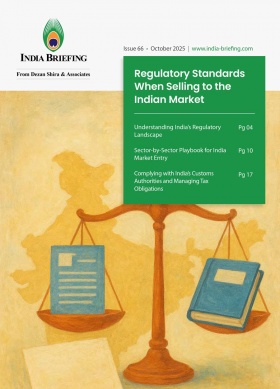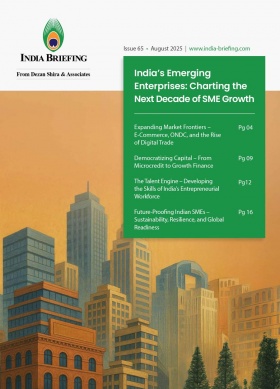Supreme Court Clarifies Tests for Determining “Single Establishment” Under the EPF Act
In a recent ruling, India’s Supreme Court has clarified the criteria for determining when multiple business entities may be treated as a single establishment under the EPF Act. Companies with shared management, resources, or operational links should reassess their corporate structures to avoid compliance exposure.
The Supreme Court of India has recently clarified how authorities should determine when multiple legal entities can be treated as a single establishment under labor laws, including the Employees’ Provident Funds and Miscellaneous Provisions Act, 1952 (EPF Act).
Authorities also treat multiple entities (such as departments, undertakings, or branches) as parts of the same establishment for bonus computation under the Payment of Bonus Act, 1965 (Bonus Act).
In its decision in Torino Laboratories Pvt. Ltd. vs. Union of India (Civil Appeal No. 9540 of 2018), delivered on July 15, 2025, the Supreme Court upheld the Employees’ Provident Fund (EPF) authorities’ decision to club two companies—Torino Laboratories and Vindas Chemical Industries—as a single establishment, providing detailed guidance on how authorities should assess such cases.
Background of the case
Torino Laboratories and Vindas Chemical Industries, both companies in the pharmaceutical sector, were incorporated as separate legal entities with distinct statutory registrations. While Vindas was covered under the EPF Act, Torino employed less than 20 employees and was not covered under the EPF Act.
Upon a factory premises inspection, the Assistant Provident Fund Commissioner (APFC) noted several commonalities between the two entities. The EPF authorities determined that they effectively functioned as a single establishment and directed Torino Laboratories to remit provident fund dues dating back to September 1995. Torino legally challenged this decision, arguing that the entities were separate and independently registered under different laws.
Key findings of the Supreme Court
The Court reaffirmed that the determination of a “single establishment” under Section 2A of the EPF Act depends on the substance of the relationship between entities rather than their formal structure. Section 2-A of the EPF Act reads as under:
“2A. Establishment to include all departments and branches— For the removal of doubts, it is hereby declared that where an establishment consists of different departments or has branches, whether situated in the same place or in different places, all such departments or branches shall be treated as parts of the same establishment.”
The judgment laid out the following principles:
1. No single determinative test
The Court held that no single factor can conclusively determine whether multiple entities form one establishment. Each case has to be decided on its own peculiar facts and the true nature of the activities between the entities.
2. Multiple relevant factors
Authorities should consider a range of factors—including unity of ownership, management, and control; common supervision; shared financial resources; functional integrality; geographical proximity; and unity of purpose or business design. Even parallel or coordinated operations aimed at achieving a common business objective may justify treating entities as one establishment.
3. Functional integrality not decisive
While the concept of “functional integrality” (whether one unit can exist without the other) remains important, it is not the sole or decisive test. The absence of such integrality does not automatically prove that the units are independent.
4. Separate registration not conclusive
Separate registration under laws such as the Companies Act, Factories Act, or Shops and Establishments Act, or the maintenance of distinct financial accounts, does not by itself establish separateness under the EPF Act. The Court emphasized that such formalities cannot override the substantive nature of interlinkages between entities.
5. Burden of proof on the employer
The employer bears the onus of proving that the units are genuinely independent and not part of a larger integrated establishment. Failure to demonstrate this with sufficient evidence may result in the authorities treating the entities as one for compliance purposes.
Application to the case
In the Torino Laboratories matter, the Court took note of the APFC inspection report, which identified the following common factors:
a) Both the units dealt with products of pharmaceutical industry;
b) Both worked from the same premises with the common entry and without any visible demarcation, with addresses of the appellant being Plot No. 65/1, Sector-1, Pithampur and of Vindas—Respondent No. 3 being Plot No. 65, Sector-1, Pithampur, District Dhar;
c) Telephone nos. of both the appellant and Vindas respondent No. 3 were common and the order set out the actual telephone no. That the entire factory was guarded by the same security personnel, namely, M/s Benaras Security Services;
d) Both the companies maintained their common Administrative Office at 102, Prabhudeep Apartment, 11 Indrapuri Colony, Indore and the Administrative Office had common telephone numbers and facsimile numbers;
e) That the two companies shared the same website and same e-mail IDs;
f) That the Registered Office of the appellant at 210, Adamji Building, 413, Narsi Natha Street, Masjid Bunder Road, Mumbai was the Head Office of Respondent No. 3, Vindas, with same telephone number and facsimile no.
g) That there was commonality of some directors, and that too belonging to the same Hindu Undivided Family (HUF);
h) That the source of finance was the same Hindu Undivided Family in the name of the director, creditor, or shareholder.
Based on these facts, the Supreme Court upheld the EPF authorities’ conclusion that the two companies constituted a single establishment for provident fund compliance.
Implications for employers
This judgment reinforces that substance prevails over form when determining whether multiple entities should be clubbed under welfare legislation.
HR and compliance managers should take note of the following implications:
- Review corporate structures: Entities with common ownership, management, or business purpose should evaluate whether their operations might be viewed as a single establishment under the EPF Act.
- Maintain clear separation: Where entities are genuinely distinct, maintain clear functional and financial independence, separate administrative offices, and distinct HR and payroll systems.
- Document relationships transparently: Maintain documentation and internal records that substantiate the autonomy of each entity in terms of operations, staffing, and financial management.
- Conduct periodic legal audits: Seek professional reviews to identify potential exposure and ensure consistent compliance practices.
- Train HR and finance teams: Ensure staff responsible for compliance understand the cumulative factors that determine EPF obligations.
Key takeaway
In the Torino Laboratories Pvt. Ltd. vs. Union of India, the Supreme Court ruling marks an important reaffirmation of the case-by-case, multi-factor approach to determining “single establishment” status under the EPF Act.
Employers should avoid relying solely on separate legal incorporation or registrations as a safeguard. Instead, they must focus on maintaining clear operational, financial, and managerial distinctions where independence is intended.
Also Read: Introduction to the Social Security System in India
Advisory note: Organizations operating multiple units, subsidiaries, or related entities should proactively review their structures with legal counsel or compliance advisors to ensure clarity under the EPF framework and avoid retrospective liabilities.
(With inputs from Archana Rao.)
About Us
India Briefing is one of five regional publications under the Asia Briefing brand. It is supported by Dezan Shira & Associates, a pan-Asia, multi-disciplinary professional services firm that assists foreign investors throughout Asia, including through offices in Delhi, Mumbai, and Bengaluru in India. Dezan Shira & Associates also maintains offices or has alliance partners assisting foreign investors in China, Hong Kong SAR, Vietnam, Indonesia, Singapore, Malaysia, Mongolia, Dubai (UAE), Japan, South Korea, Nepal, The Philippines, Sri Lanka, Thailand, Italy, Germany, Bangladesh, Australia, United States, and United Kingdom and Ireland.
For a complimentary subscription to India Briefing’s content products, please click here. For support with establishing a business in India or for assistance in analyzing and entering markets, please contact the firm at india@dezshira.com or visit our website at www.dezshira.com.
- Previous Article Navigate India’s STP and EHTP Frameworks: Benefits and Registration Process
- Next Article Public Holidays in India 2026 and Key HR Considerations












